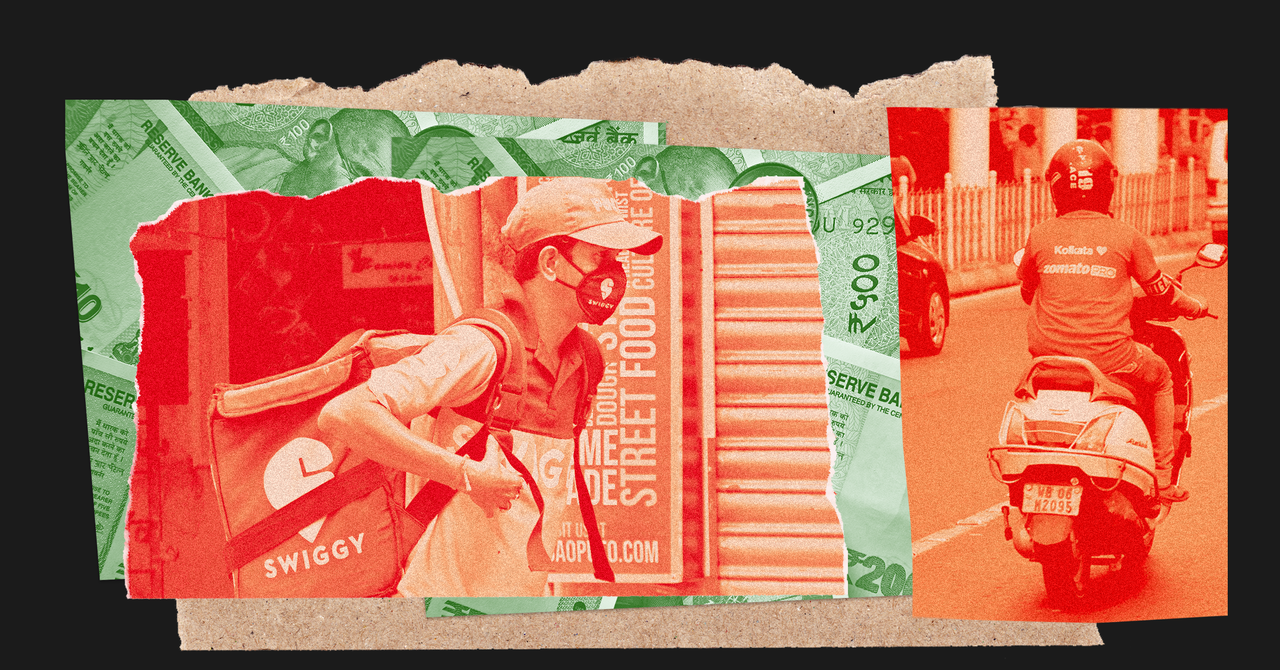“After Covid, [cab-hailing platforms] have no management. They have laid off many employees. There are not many employees to help [drivers on ground]. Who are we taking these problems to?” says Matthew. “At least before that there was a concerned office [to address disputes], now there is no concerned office. Everything is online.”
Ola did not respond to questions from WIRED.
CIS’s Rathi says a responsive grievance mechanism for gig workers is “completely absent” and remains “one of the top three demands” employees have. “The companies are able to provide more responsive services to customers,” he says. “The workers are just as important, if not more so [than customers]and they should be able to extend the same kind of mechanisms, practices and policies to employees.”
Because workers are often in precarious economic situations and have no job to fall back on, being robbed or assaulted has a huge impact on their ability to earn money.
Some platforms do offer limited insurance for gig workers, including for accidents. However, according to Aditi Surie, a senior consultant at the Indian Institute for Human Settlements, a research organization based in Bangalore, who has studied the plans, they don’t necessarily offer much respite. Her research showed that claiming an insurance policy offered by the platform is a long and tedious process. “So even if you have a grievous bodily injury, there are many steps that prevent someone from taking advantage of an insurance or offer from the platform,” says Surie. “So if you get into a traffic accident, for example, the police have to intervene. Finding the right police station now, contacting your insurance company in time, getting the ambulance to the scene – these are all things that platforms say they try to help, but there is nothing – which then comes back to the employee.”
Uber spokesperson Tomar says the company provided financial assistance to Devi to cover her loss of income due to the incident, and that the company “helped her claim her medical expenses under Uber’s travel insurance policy, which covers all drivers on the app.” .” Devi claims that both the insurance money and Uber’s financial aid for her loss of earnings have not been deposited into her bank account.
“Uber is committed to driver safety in the Uber app,” says Tomar. “Uber drivers have many of the same transparency and accountability features that riders have, such as feedback and ratings for every ride, GPS tracking, an emergency button, and a rideshare feature.”
In Delhi, Devi has had enough of Uber, which she says is not safe or profitable enough to justify the risks. Devi, who previously worked in a hospital for a meager salary, learned to drive so she could work for Uber, and began driving for the platform in 2019. As a single mother, she had to find work to support her two children. “At that time, many women around me told me that Uber is a good option and the earnings are good,” she says. “They didn’t even deduct high commissions then.”
The first time she complained to Uber was in 2020, when a customer verbally attacked her. “He hurled swear words at me. I then complained to the customer, but Uber did nothing about it,” said Devi. “Uber never does anything when a driver complains. But even a small complaint against a driver means that he has his account blocked.”
At the time, she recalls spending 500 rupees ($6.08) on fuel every day, but taking home 2,000 rupees ($24.39) in earnings. But lately, she says fuel costs have risen to 700 rupees a day, while her income has fallen to less than 1,000 rupees.
Devi is upset that despite the life-threatening incident she experienced, the only calls she has received from Uber are about when she will start driving again, as she has been offline since January. She furiously says she blocked those numbers. “I’m worried about my kids – what if something like this happens again? So I have to think very carefully before taking the next steps,” she says. “For now, I don’t plan on driving for Uber again.”
(Reporting for this story was supported by the Pulitzer Center’s AI Accountability Network.)

